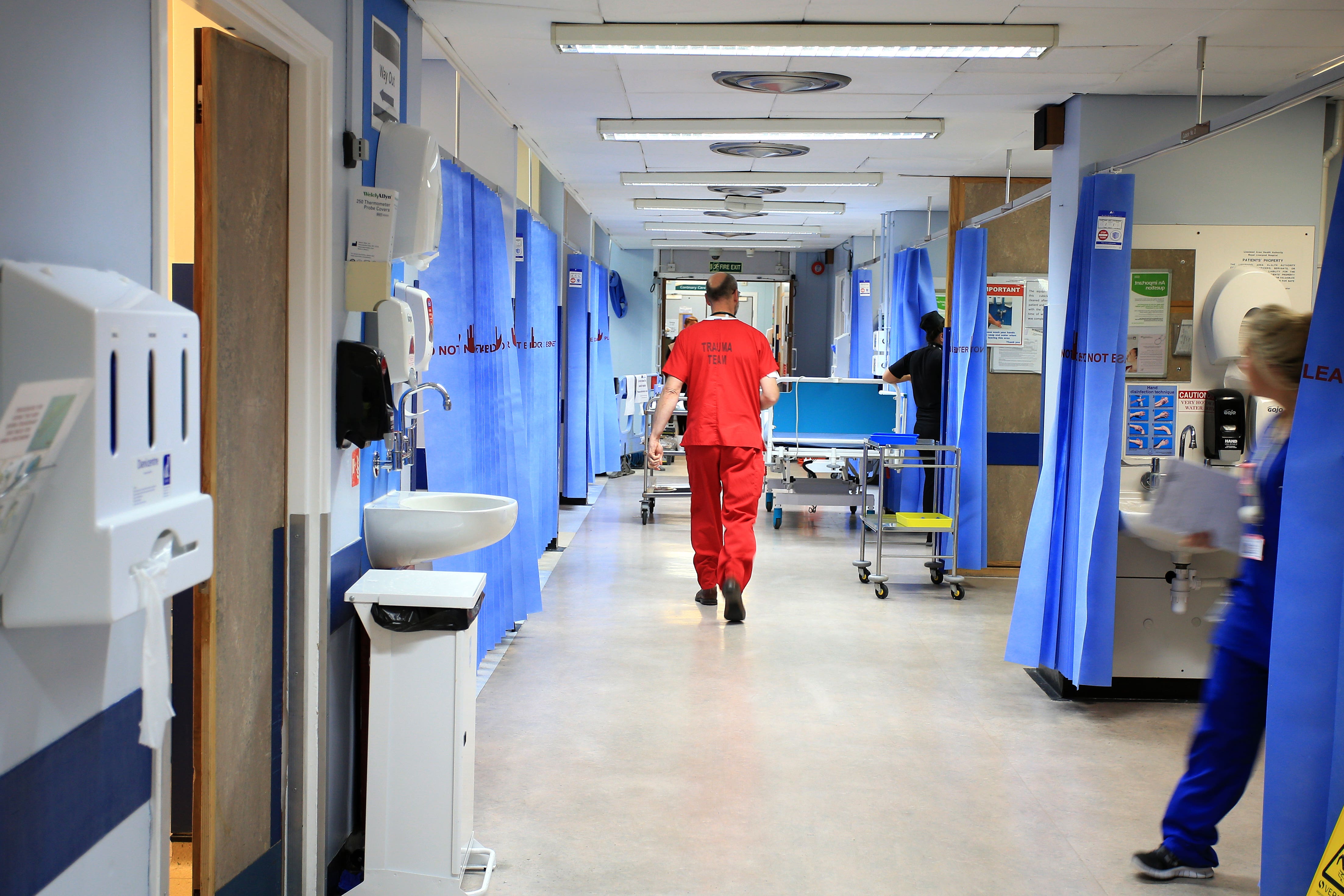Government should declare national NHS major incident, warns health chief
The last time such a declaration was made was in March 2020 as Covid-19 began sweeping through hospitals.

Your support helps us to tell the story
From reproductive rights to climate change to Big Tech, The Independent is on the ground when the story is developing. Whether it's investigating the financials of Elon Musk's pro-Trump PAC or producing our latest documentary, 'The A Word', which shines a light on the American women fighting for reproductive rights, we know how important it is to parse out the facts from the messaging.
At such a critical moment in US history, we need reporters on the ground. Your donation allows us to keep sending journalists to speak to both sides of the story.
The Independent is trusted by Americans across the entire political spectrum. And unlike many other quality news outlets, we choose not to lock Americans out of our reporting and analysis with paywalls. We believe quality journalism should be available to everyone, paid for by those who can afford it.
Your support makes all the difference.The Government should declare a national NHS major incident to rescue the healthcare system from the current crisis, a senior health official said.
It would mean all four UK nations would coordinate their response and allocate resources to help meet the overwhelming demand for care that is enveloping many hospitals around the country.
Dr Tim Cooksley, president of the Society for Acute Medicine (SAM), said: “The current situation in urgent and emergency care is shocking. It is in a critical state for patients and it is an extremely difficult for healthcare staff who are unable to deliver the care they want to.
“Political leaders across the UK need to listen, meet urgently and accept the need to declare a national NHS major incident.
“The outcome must be a four-nation emergency strategy which results in short-term stabilisation, medium-term improvement and long-term growth – the grave situation we are in means it will be a long journey.
“Sustainable workforce and capacity plans are required urgently to boost morale among staff and patients – as we have long called for – and we now need to see action.”
Early on New Year’s Day, interim chief executive of NHS Providers Saffron Cordery told the PA news agency that the NHS is under “equivalent levels of pressure” as during the early stage of the pandemic.
Dr Cooksley said many of the current problems are not new and that a number of recommendations had been outlined since the pandemic that offer the “best hope” of a short-term solution.
He said: “These cover, among other things, increased investment in primary care, social care, mental health and ambulance services and quick-access phone lines for communication between secondary and primary care.
“There must be a seven-day range of healthcare options to which NHS 111 and primary care can direct patients and hospitals must urgently expand same day emergency care – delivered by acute medical teams – for patients referred from primary care and NHS 111.
“Patients with specialty hospital referrals need a rapid response and a treatment plan that minimises unnecessary admission to improve flow and prevent delays so they can be moved from ambulances quickly and treated in safe areas.
“Diagnostic and support services must be available seven days a week to maintain patient flow and local healthcare systems must expand community care.
“Discharge planning should commence on admission and be optimised so that patients discharged from hospital are transferred to an environment with tailored support for their health and care at an appropriate time of the day.
“This is a time of crisis and there are fears this will worsen further over the coming months, so leaders must prioritise those improvements we can make now that will help us to navigate this turbulent period.”